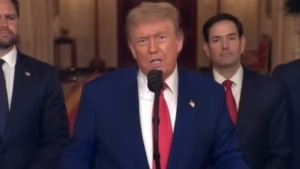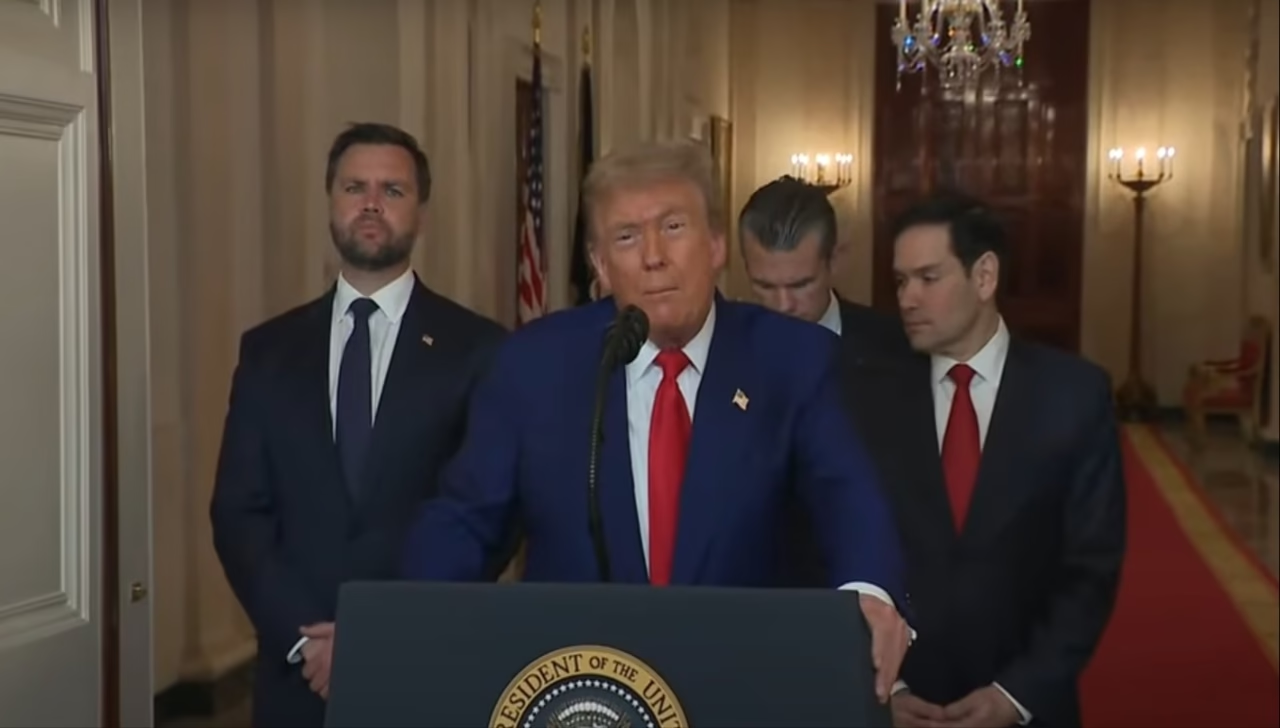us bombs iran: The U.S. military launched an attack on three Iranian nuclear sites early this morning. This information was shared by former U.S. President Donald Trump.
He posted on the social media platform Truth Social. US President stating: “We have successfully completed a major strike on Iran’s three nuclear facilities—Fordow, Natanz, and Isfahan.
He Added, All aircraft are now out of Iranian airspace. A full bomb load was dropped on the main facility at Fordow. All jets are returning home safely.
Trump Said, Congratulations to our great American warriors. No other military in the world could have done this. Now it’s time for peace! Thank you for your attention on this matter.”

Does Donald Trump have the authority to order a military attack on another country?
However, his decision is now facing opposition within his own country. His action is being labeled unconstitutional. This raises the question—does a U.S.
President have the authority to order a military strike on another country? What constitutional powers does the president hold to authorize such an attack? And why is there so much opposition?
us bombs iran: Trump’s Strike on Iran Raises Legal and Constitutional Questions
U.S. military attacked three Iranian nuclear sites early this morning, and Donald Trump shared this news on Truth Social.
But questions are now being raised about the legality of his decision. A video has surfaced on the social media site X, showing a senator from the U.S.
State of Vermont reacting to Trump’s post after the Iran attack. Only Congress (the U.S. legislature) has the authority to declare war or approve such military actions.
Let’s understand whether a U.S. president can legally order a military attack on another country. Under what circumstances can this happen?
Yes, the President Can Issue an Order—But Only Under Certain Conditions
Actually, The U.S. President is the Commander-in-Chief of the Armed Forces. So, Under Article II of the U.S. Constitution, the president does have the authority to order military action against a foreign nation.
However, this authority is conditional. Unless there is an immediate threat of a terrorist attack or danger from another country, the president cannot authorize an attack without prior approval.
When Is Approval Required?
For large-scale wars or prolonged military operations, the U.S. President must seek approval from Congress under the War Powers Act of 1973.
According to this act, the president must inform Congress within 48 hours of initiating military action and must end the action within 60 days if congressional approval is not obtained.
On the international front, the United Nations Charter prohibits attacks without self-defense or Security Council authorization, making such attacks a violation of international law.
Donald Trump’s first presidential term was filled with controversy. Between 2017 and 2020, he ordered the killing of Iranian General Qassem Soleimani without congressional approval, which drew significant criticism.
Now, Trump appears to be repeatedly bypassing Congress in making such decisions, leading to growing opposition within the country.
Therefore, His critics in Congress and the Senate are questioning how Trump can authorize military action without congressional consent.
Read Also- Income Tax Filing: How to File Income Tax Return Without the Help of a CA







